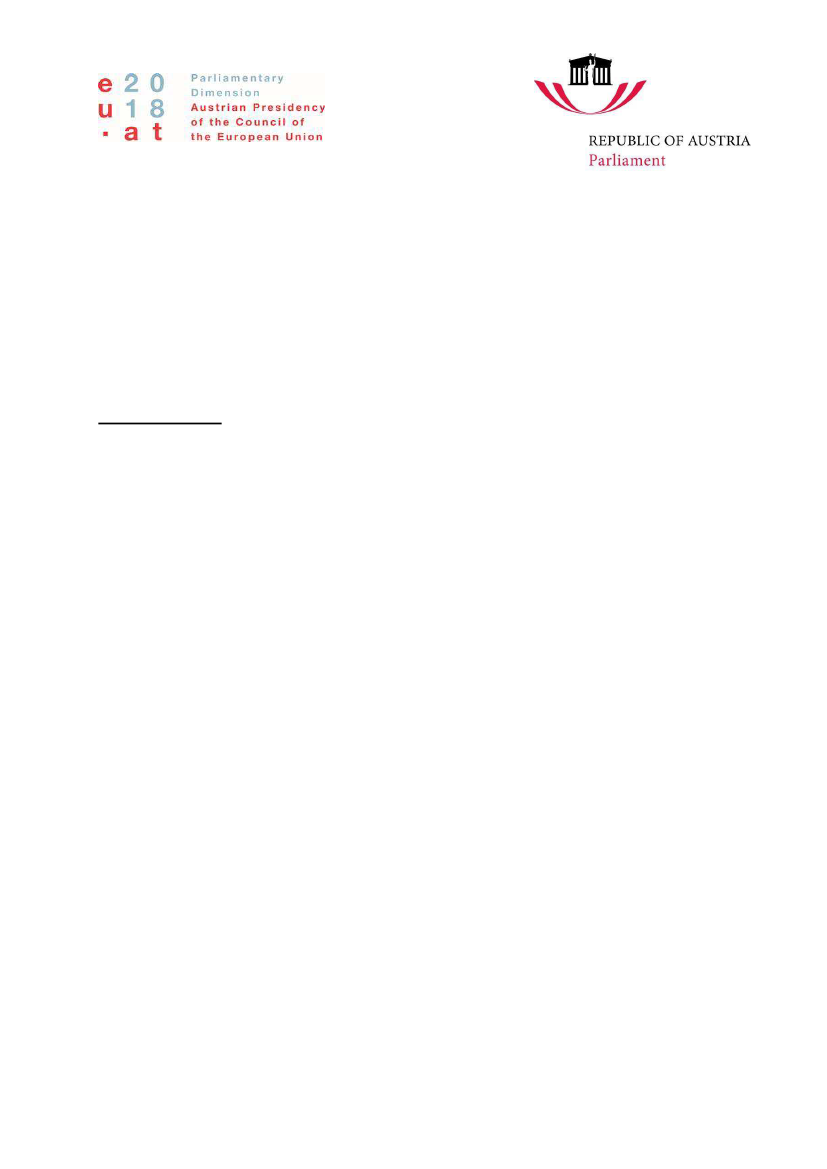
Interparliamentary Conference for the Common Foreign and
Security Policy and the Common Security and Defence
Policy (CFSP/CSDP)
Vienna, 11 - 12 October 2018
Presidency Summary
Opening session
At the Interparliamentary CFSP/CSDP Conference on 11 and 12 October 2018, issues such
as the humanitarian situation in Syria and the enlargement process in the Western Balkans
were on the agenda in three working sessions, along with other issues, such as security,
migration and the protection of the EU's external borders. Three workshops dealt with the
future of the nuclear agreement with Iran subsequent to the US withdrawal, facilitating military
mobility within PESCO and the role of the OSCE as an important partner in the East-West
dialogue.
In his welcoming address,
President of the Austrian National Council Wolfgang Sobotka
called for the EU to position itself more effectively on the global political stage. To this end, the
unanimity principle for certain areas should be reconsidered. In migration policy, it is necessary
to recalibrate the EU’s partnership with Africa in order to place it on equal footing. He also
underlined
the central importance of the Western Balkan countries for the “peace project
Europe”, but also stated that accession must not take place “on the cheap”. The Austrian
parliament offers assistance to help integrate the region more closely into the EU, for example
by organising democracy workshops in Montenegro and Kosovo* or by setting up a planned
scholarship programme for employees of parliamentary administrations.
President of the Austrian Federal Council Inge Posch-Gruska
set forth that it was the EU's
responsibility to ensure a balance between social and economic aspects. Alluding to the
Austrian government's motto for the Council Presidency, "A Europe that Protects", she
emphasised that although citizens’ need for security must not be overlooked,
such efforts must
also include social protections and safeguards for prosperity. Maintaining security, stability and
peace, not only in the EU, but also in the European neighbourhood is a shared challenge,
which necessitates a viable Common Foreign, Security and Defence Policy, she said.
Chair of the Foreign Affairs Committee of the Austrian National Council Andreas
Schieder
called for development cooperation with Africa to be placed on a new, more equal
footing in order to put an end to exploitation and establish fair relations between Europe and
Africa in the spirit of a new North-South relationship. The question of migration is not primarily
about further expanding the "Fortress Europe". Improving the humanitarian situation in Syria
is essential in this context as well. Moreover, he advocated an inclusive dialogue with the
candidate countries of the Western Balkans.
1/6
* This designation does not affect positions regarding status and is in accordance with UN Security Council Resolution 1244/1999
and the opinion of the International Court of Justice on the Declaration of Independence of Kosovo.